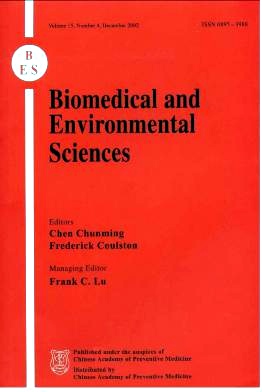Evaluation of Cytogenetic Effects of Isoproturon on the Root Meristem Cells of Allium sativum
-
Key words:
- Allium sativum /
- environmental chemicals /
- root growth /
- mitotic index /
- test system /
- test model
Abstract: Objective To validate the use of Allium sativum as a reliable test model for genotoxicity, isoproturon, a substituted phenylalkylurea herbicide, was evaluated on the root meristem cells by this plant system. Method Test concentrations were selected by determining EC50 and root tips were exposed to various concentrations for 6 or 24 hr. EC50 concentration was calculated to be 70.8 ppm for the root growth. In addition to root growth retardation exposure to isoproturon induced morpholoogical changes like discolouration and stiffness of roots. Results Exposure to various experimental concentrations of isoproturon (35-280 ppm), including EC50, significantly and dose-dependently inhibited the mitotic index and induced chromosome breaks/mitotic aberrations at 6 or 24 hr. Conclusion The frequency of aberrations was found to be decreased in a dose dependant manner at 24 or 48 hr post exposure, however in comparison of control cells the frequency of aberrations was considerably high which indicates genotoxicity potentials of isoproturon. Further, present study also suggests that Allium sativum is a sensitive, efficient, and reliable test system for measuring the genotoxicity potential of environmental chemicals.
| Citation: | L.K.S, CHAUHAN P, N.SAXENA, S.K.GUPTA. Evaluation of Cytogenetic Effects of Isoproturon on the Root Meristem Cells of Allium sativum[J]. Biomedical and Environmental Sciences, 2001, 14(3): 214-219. |







 Quick Links
Quick Links
 DownLoad:
DownLoad: